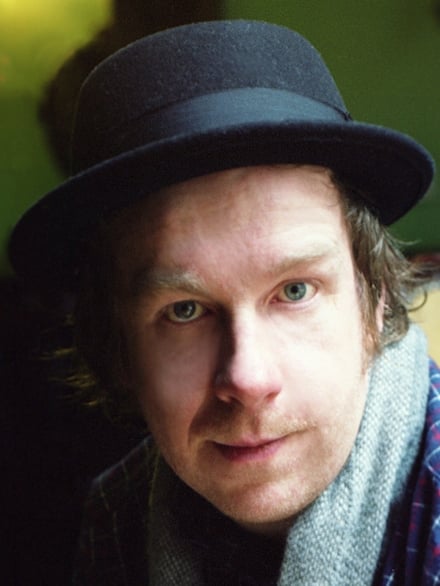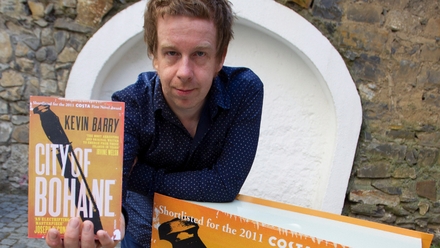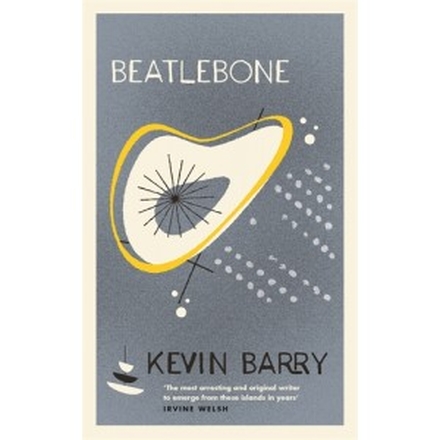In Kevin Barry’s second novel, Beatlebone, the year is 1978, and John Lennon has escaped New York to attempt to find the island which he bought off the west coast of Ireland, nine years beforehand. As he tries to accustom himself to County Mayo, he keeps his eyes down and books himself into a rather eccentric hotel. By page 13 of the 260-page novel, the ex-Beatle has reached a suitable vantage point from which to view the 365 islands of Clew Bay. How will he tell which island is his, he muses, as he surveys the scene.
Lennon did in fact buy the uninhabited island of Dorinish off the Irish coast in 1967 for £1,700 (€2,395.). Barry’s story imagines him going there to undertake a course of primal scream therapy. His companion on the intrepid quest through the Western badlands is his driver, Cornelius.
Now the novel has won Barry its first prize, worth £10,000 (€14,000.) The other works in contention for the Goldsmiths award were Max Porter’s Grief Is The Thing With Feathers, Magnus Mills’ The Field Of The Cloth Of Gold, Tom McCarthy’s Satin Island, Adam Thirlwell’s Lurid & Cute and Richard Beard’s Acts Of The Assassins.
“It’s great to get a prize when a book is only out a wet week,“ Barry says of Beatlebone which was published on October 29. “It settles your nerves a bit about it. Publication is always a nervous time. I didn’t expect to win it, I must say.” In a crowded market, he says that "it is tough to make space for a new book, so many good things coming out all the time. You are counting on a bit of luck, and a bit of good timing here and there. So I definitely got it with this one.”

The novel has its own wild poetic vein, and is comparable in tone and setting to some of the work of the late Dermot Healy, author of The Bend for Home and A Goat's Song. Take the following: And the sea is out there and moving. He hears it drag on its cables – a slow rusted swooning.” Or how about this: and he can see his doggy dreams of bones and cats and flirty poodles smoking Gitanes and perking their high tight poodle asses in the air.
'Beatlebone is a novel that takes its reader to the edge - of the Western world, of sanity, of fame, of word, “ declares Josh Cohen, Chair of Judges of this year's Goldsmiths Prize. “Its compulsive narrative of one of the last century's greatest musicians and pop icons, gradually, and without a hint of contrivance, becomes a startling and original meditation on the uncanny relationship of a writer to his character.”
Barry won the 2013 IMPAC International Literary Prize for his first novel, City of Bohane, worth €100,000, while his short story Beer Trip to Llandudno netted him £30,000 (€42,000) when it won the Sunday Times Short Story award. The writer makes his living completely from writing, he doesn’t teach or work at anything else.
Married and living in County Sligo, under the Ox Mountains, Kevin goes out to his shed every day to write. “I make up my mad little world,“ he says. “You’re not always in great form at the desk, but I try to remember that it’s a privilege to be able to do this as your work. Most of the time I manage to have a bit of a laugh in there.”
Eimear McBride, the celebrated author of A Girl is a Half-Formed Thing, was one of the judges of this year's Goldsmiths award, which is administered by Goldsmiths College, London in association with the New Statesman magazine. Jon McGregor and Leo Robson were the other judges. McBride praised Barry’s novel in the following terms: 'Beatlebone by Kevin Barry is a storm of a novel - unsettling and mesmerising. It’s formally interesting also, with the novelist choosing to step on and off the page.'
As it happens, in 2013, the then inaugural Goldsmiths prize for “fiction at its most novel” went to McBride's novel, A Girl is a Half-Formed Thing. Kevin loved Eimear’s book. “I read it before it came out even, I had a proof copy.” As for other Irish writers, he believes that Julian Gough has a great future and he is a big admirer of his fiction.
Recently, Kevin discovered that Steely Dan founder Donald Fagen is a fan of his work and has been passing Beatlebone around to friends. He has gleaned too that Fagen has bought tickets for the reading which he shortly give in New York which delights the writer. Irvine Welsh, author of Trainspotting, has also praised the prize-winning writer, declaring him to be “the most arresting and original writer to emerge from these islands in years.”

Kevin at the time of the publication of his first novel, City of Bohane
Kevin reveals that he will return to the scenario of City of Bohane for his next novel. Place is important to him and even listening to him talking about his adopted corner of the North-West confirms this. It rains constantly in the Ox Mountains, he says, through which he has been known to cycle. “Where we are in Sligo, Paddy, every cloud off the North Atlantic breaks up on the Sligo Hills and lands on Ballinafad. But it's great for the writing, there’s not much else to be doing.”
He comes across as hugely personable, although I use the adjective 'cheery'. “I wouldn’t say I’m cheery, I’m quite sociable, " he counters. " I like talking to people and yapping and going around. But a lot of the time I’d have fierce melancholy spells when I’m kind of sat looking at the four walls wondering what line is coming next.
"For any worthwhile fiction, or drama or poetry, you have to go into your own dark emotions to get it. But in some ways it kind of frees you from them as well and lifts that burden from them.“
Melancholia, he says is interesting because it is not depression. “There is a kind of sweetness there as well that can give a real joy or spring to it. ” Moreover, he believes that melancholia is “a natural, very human experience – to use quite a clichéd thing, the mirror needs a dark back to show the light.”
Writers are lucky in that that they can channel such melancholia, I suggest, a liberty not afforded to those who have no means of expression. “Well, do you know what, the thing about writing after a while - it’s not the thing you do, it’s who you are. It’s how you get through, and it’s how you cope. And some people cope through religion, or some people get by on pills, or some people get by on meditation or mindfulness. For me, it’s writing what keeps me going and it’s absolutely fundamental to who I am, I wouldn’t be right otherwise.”

Beatlebone is out now.

